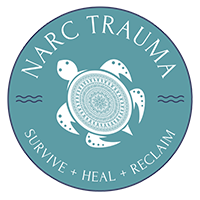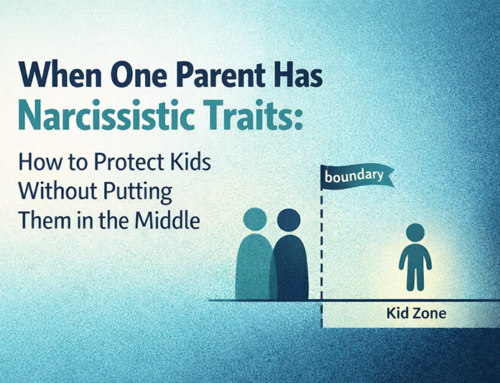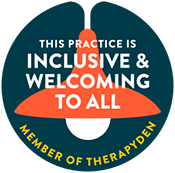10 Covert Narcissist Traits That Impact Trauma Healing

By Brenda Stephens, Licensed Professional Clinical Counselor
Understanding covert narcissism is crucial for anyone navigating the complex landscape of trauma healing. Covert narcissists may not display the overt arrogance often associated with narcissism, but their subtle traits can deeply affect relationships and emotional well-being. In this article, we’ll explore ten specific traits of covert narcissists and how they can impact your healing journey. By becoming aware of these traits, you can better equip yourself to identify and manage these dynamics in your life.
1. Subtle Manipulation Tactics
Covert narcissists often use subtle manipulation to control others without being overtly aggressive. This can lead to confusion and self-doubt in their victims. They might employ tactics like guilt-tripping or passive-aggressive comments to steer conversations in their favor, leaving you questioning your own reality. Over time, this affects your self-esteem and can push you further into emotional distress. These tactics can be so nuanced that it’s difficult to recognize them immediately.
You might find yourself constantly trying to appease their needs while neglecting your own. This dynamic breeds resentment and fatigue, ultimately complicating your trauma healing process.
2. Victim Mentality
Covert narcissists frequently position themselves as victims, which can overshadow your own experiences and make healing more challenging. By always casting themselves in the role of the wronged party, they divert attention from your pain. You may notice that your struggles take a backseat to their perpetual quest for sympathy, making it hard to process your own emotions. This tactic not only drains your emotional resources but can also leave you feeling guilty for expressing your needs.
The constant need to validate their feelings can hinder your own healing journey, creating a tumultuous emotional imbalance that is tough to navigate.
3. Lack of Empathy
One of the hallmark traits is a profound lack of empathy, making it difficult for them to understand or support your healing needs. This absence of emotional connection can feel deeply isolating, especially when you are seeking understanding and compassion. It’s disheartening to pour your heart out, only to be met with indifference or dismissed feelings. As you try to heal, you may find your emotional expressions falling on deaf ears, resulting in feelings of abandonment. This lack of empathy not only prevents genuine support but also perpetuates a cycle of pain that can be hard to escape from.
The journey to recovery becomes fraught with obstacles, particularly when those who should be supportive are emotionally unavailable.
4. Gaslighting and Self-Doubt
Covert narcissists often engage in gaslighting, causing you to question your reality and hindering your recovery process. You might find yourself trapped in a web of conflicting narratives where your feelings are constantly invalidated. This manipulation can erode your self-confidence and create a pervasive sense of confusion, as you repeatedly question what is real and what isn’t.
Gradually, this can lead to a deep sense of self-doubt. You may begin to internalize their distorted perceptions, making it harder to trust your own instincts. Healing from trauma requires a firm grasp of your own reality, and gaslighting only complicates and exacerbates that struggle.
5. Emotional Withholding
Covert narcissists may withhold emotional support as a form of control, leaving you feeling isolated during your healing journey. This dynamic creates a dependency where you seek their approval, only to be met with silence or neglect. Their inconsistent emotional availability can make you feel anxious and unwanted, complicating your ability to navigate your own emotional landscape.
Without the nurturing support you need, additional layers of trauma can surface, making it even more challenging to process what you’ve already endured. Emotional withholding acts as a silent form of abuse, trapping you in a cycle of longing and disappointment that hinders your recovery efforts.
6. Conditional Love and Approval
Their affection often feels conditional, which can create anxiety and insecurity, complicating the healing process. You might find yourself constantly striving to meet their expectations, worried that without their approval, you’ll lose their love. This can foster a negative self-image
and keep you rooted in anxiety, further complicating your path to recovery. Over time, this conditional framework of love can lead you to prioritize their needs over your own, obstructing your ability to heal. You deserve an environment where love and understanding are unconditional; anything less can make recovery feel like an uphill battle.
7. Superiority Complex
While they may not display overt confidence, their superiority complex can manifest in subtle ways, making you feel inferior or unworthy. This can manifest as condescension or a dismissive attitude toward your achievements, leading you to constantly question your worth. Living under such scrutiny not only damages your self-esteem but also complicates your ability to engage in healthy healing practices.
Over time, the constant comparisons can lead to feelings of despair and hopelessness. It’s crucial to recognize that everyone’s healing journey is unique, and measuring yourself against their arbitrary standards can derail your progress. Embracing your individual path is essential in finding the strength and resilience to overcome trauma.
8. Charming but Insincere
Covert narcissists can be charming, but their kindness may lack sincerity, leaving you questioning their true motives. Often, this charm serves as a façade that hides a more profound emotional emptiness. You might find yourself enchanted by their allure, only to be left feeling wounded once their true colors emerge.
This inconsistency can lead to an emotional rollercoaster, leaving you in a constant state of anxiety about when the next shift will occur. It can be agony to feel the push and pull of false affection, all while your healing takes a backseat to the unpredictability of their behavior.
9. Boundary Violations
They often disregard or violate personal boundaries, making it hard for you to create a safe space for healing. It’s in these moments that your needs and emotions can feel trampled, leading to disempowerment in your own healing journey. Without the ability to assert your boundaries, emotional distress can spiral, complicating your recovery.
Establishing healthy boundaries requires self-awareness, which can be nearly impossible when navigating a relationship with a covert narcissist. The persistent violations can chip away at your sense of self, making it challenging to reclaim your power.
10. Difficulty in Accepting Responsibility
Covert narcissists often struggle with admitting their faults, which can lead to unresolved conflicts and hinder your emotional recovery. When faced with accountability, they may deflect blame or turn the narrative back onto you. This refusal to take responsibility not only prolongs conflicts but can also exacerbate feelings of guilt and self-blame in you.
Healing requires openness and honesty, especially when it comes to acknowledging one’s role in a conflict. Without that, emotional progress becomes stunted, leaving you feeling stuck in a cycle of pain and resentment. Recognizing this trait is vital for your healing journey, as it can shed light on why some relationships feel so heavy and unfulfilling.







